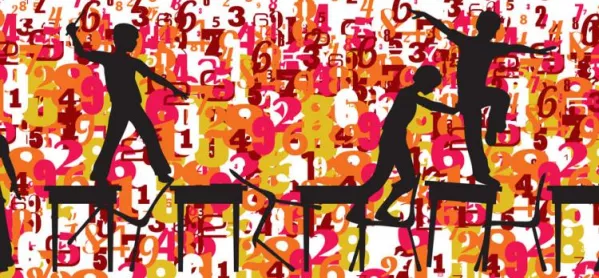I choked so badly on my breakfast Muesli when I heard the news that Andreas Schleicher was calling for teachers to teach children how to recognise fake news, I frightened the dog. She now looks at me suspiciously every time I pick up a spoon.
The statistician who managed to con whole governments into thinking the numerous tables his Pisa tests generate are educationally meaningful, had apparently woken up to the fact that if you make generating statistics the goal of teaching, then statistics are all you get.
I wish this was funny, but for the hundreds of thousands of children globally whose schooling continues to be blighted by this ubiquitous faith in the figures, it is anything but.
Teaching to the test, that failure to educate Mr Schleicher is only now so exercised about, is the inevitable product of data driven educational policy, and hundreds of thousands of teachers should be furious at Mr Schleicher’s monumental hypocrisy.
Truth and accuracy are as common currency in an English teacher’s classroom as experiment and results are in the science lab. Fake news is a godsend to any decent English teacher: were they actually free to teach.
We know that the best secondary school teachers are passionate about their subject yet any opportunity for them to convey that passion has been systematically and implacably stifled out of their classrooms by educational policies built on this game of fantasy statistics.
And wow, are they fantastic! Don’t let anyone tell you otherwise, and to demonstrate that in a way every teacher will recognise, here is one example.
Pisa tests go to considerable lengths to understand the social background of the children they test. One of the tools they use to assess children’s educational disadvantage is the number of books in the home.
Now most experienced educational researchers would buy into the value of this one. Yet how does Pisa go about testing this on the ground as it were?
It asks children via a computer, How many books are there in your home? Then in the generous spirit of open book exams everywhere helpfully adds There are usually about 15 books per foot of shelving. Do not include magazines, newspapers, or your schoolbooks.
Now I don’t know about you, but I struggled to remember (without looking) how many bookshelves I have in my house. So I asked my sixteen-year old daughter if she knew. She got it wrong too, so estimating their length in feet and inches without the help of a tape measure proved a bit of a battle for both of us.
Now think about the range of fifteen-year-olds you teach. Those real, complicated individuals with names that you know almost too well for your own sanity. How would they have answered this question?
How would they have decided which of the six multiple choice answers from 0-10 to over 500 books to plump for?
How would they have answered this other question, How old were you when you started pre-school? While I suspect every teacher reading this will smile knowingly: every politician or statistician won’t have a clue why.
Add to this the tremendous cultural variation in the way these tests are administered by schools in 72 different countries, the dramatic differences in the way British, Chinese or Tunisian children will approach and engage with them, and you have data so raw it still has a pulse. Give me raw experience every time.
In 2015 over half a million 15-year-olds in 72 countries took Pisa tests in science, mathematics, reading, collaborative problem solving and financial literacy.
I’ve no problem whatsoever with governments feeling they need to know about children’s performance if what they want to do is a better job of educating them, at least in maths and reading.
I do have a problem when the statistical faith that underpins that desire becomes so warped it infects the classroom to the point where great teachers are no longer free to educate.
This magazine regularly voices teachers’ anger and sense of impotence. They go into the profession determined to do the best for the children they teach, to do so much more than Mr Schleicher appears able to imagine, only to find politicians and policy makers have little interest and less inclination to support them.
It is a commonplace in the world of business consulting that culture eats strategy for breakfast, one reason why successive governments have found top down school improvement such a challenge.
Well, in this case I hope culture whets its appetite and ordinary, individual classroom teachers tell Mr Schleicher to stick with what he knows best, how to generate fantasy numbers, and leave them to get on with the real work of educating real children.
Joe Nutt is an educational consultant and author
To read more columns by Joe, view his back catalogue
Want to keep up with the latest education news and opinion? Follow Tes on Twitter and like Tes on Facebook




